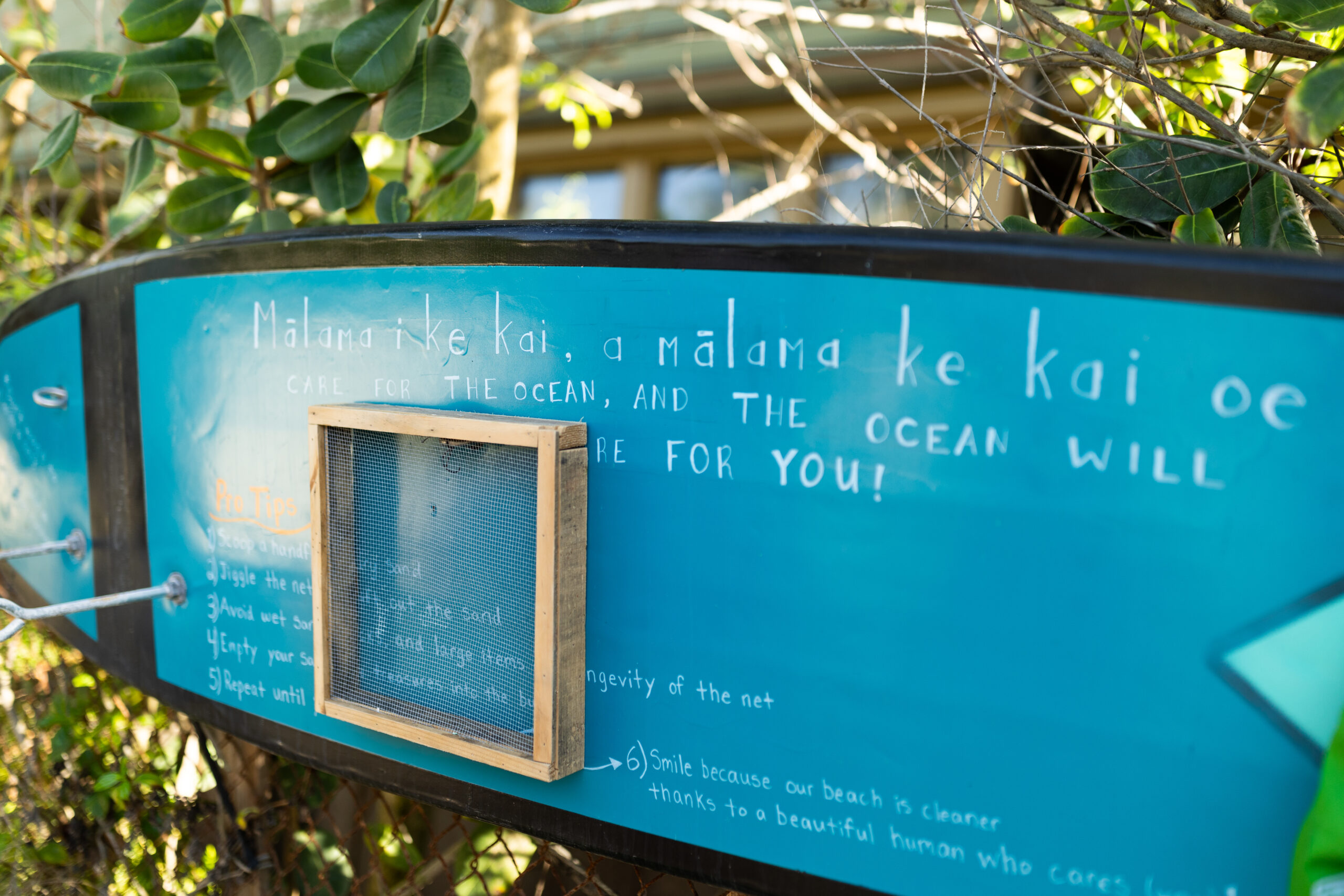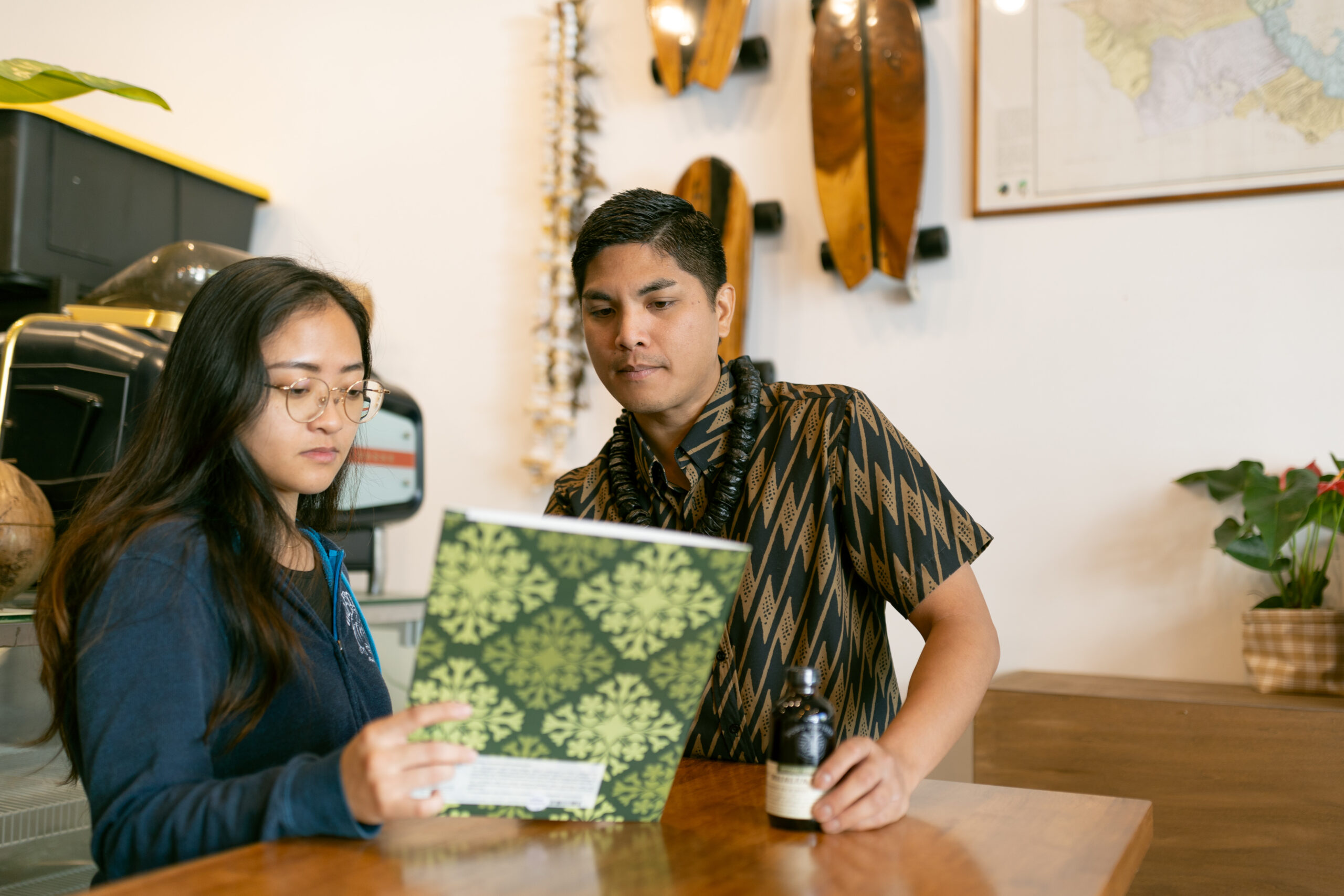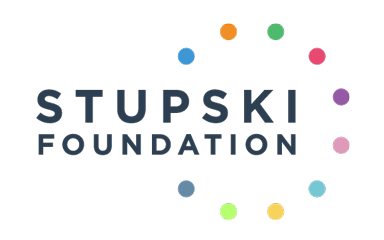Why CTL’s model of leadership is what Hawai‘i needs now
In our influencer-oriented society, it’s easy to see how the dominant model of leadership has taken hold: Recognition comes as a nod to whatever achievement or milestone helped a person separate themself from the rest of the pack. All that striving is rewarded with the bestowing of a coveted title: leader.
There are countless leadership programs and cohorts, some promising a pathway to “servant leadership” alongside connections and prestige. Yet, all too often, they follow the same script: lionizing personal striving or accomplishment over the collective good, developing leaders untethered from communities as they rise above them.
When young people see leadership framed in this way, as a carousel of celebrity, it’s easy for them to lose their connection to the people and places around them. Center for Tomorrow’s Leaders (CTL) subverts that version of leadership by encouraging our keiki to understand leadership more fully and to recognize a kuleana that calls them to serve and strengthen the island communities they come from.
CTL doesn’t just teach high school students how to lead; it teaches them why Hawai‘i needs relational leadership that begins with listening. It helps them understand that leaders who act from responsibility rather than ambition can achieve more than fame, and that true leadership begins when a person cares deeply enough to act. “We’re not just trying to give students a title or put something on their résumé,” said April Nakamura, CTL interim executive director. “We want to help them discover why they want to lead in the first place.”
Foundational CTL Programs
Ambassadors Program – Project-based curriculum for undiscovered leaders in high schools statewide.
Fellows Program – Cohort of twenty seniors from public and private schools with hands-on community project focus.
EMERGE Camp – Annual retreat to engage ambassadors and cultivate connections.
Leadership That Is Local
CTL begins by partnering with Hawai‘i high schools to offer three foundational programs: the Ambassador program (school-based), the Fellows program (multischool cohort), and EMERGE Camp (senior-year capstone retreat). Each of these focuses on helping Hawai‘i youth identify needs in their communities and develop the skills and experience to address them.
The Ambassador program begins in a student’s sophomore year and can look different in each school. CTL facilitators work directly with students during flex periods and within existing programs like career academies. The common leadership curriculum focuses on helping students move beyond the idea of “finding your passion” and toward discovering how to meet their community’s needs.
That framing helps shift everything for students because CTL challenges them to become passionate about the needs in their community rather than chasing some elusive glory. It’s a radical reversal from the world that equates leadership with landing on a list of who’s who and focusing, instead, on collective challenges.
“Entrepreneurship is fantastic,” April emphasized, “but leadership is different. I tell students you’re not just going to create something that doesn’t need to be there. Leadership isn’t about you.”

“I think my greatest takeaway from CTL, the greatest gift, was that I learned that anyone can effect change if you have the heart for it.”
Allie Saunders, CTL Fellow alumna
Learn more about Center for Tomorrow’s Leaders, and how you can support their work to cultivate values-based leadership among Hawai‘i youth.
Leadership Through Action
CTL’s Fellows program selects roughly 20 high school seniors from public and private schools who engage in a major statewide or community-based project. One recent example that hit close to home for April was a Fellows cohort that worked with a group of Ambassadors to focus on the question: “What happened to Aloha?” The students conducted more than 100 interviews to explore how people across the islands defined the concept of aloha, developing tools to bridge different communities to explore how this fundamental element of island communities can be restored in everyday relationships.
For Allie Saunders, CTL Fellow alumna, the idea that students could engage in collective action on big issues was life-changing. Her Fellows team launched Fahrenheit 73, a crowdfunded initiative to install air conditioning in an overheated classroom at Campbell High School on O‘ahu. “People in hot classrooms were suffering health-wise, and we wanted to address that issue, to address education equity,” Allie said. “I had the realization that if the adults weren’t going to do it, then we had to step in and do it and that we were qualified to make the change we wanted to see.”
They raised $20,000 in a matter of weeks and were featured on local news media. “We saw the problem, and we addressed it very quickly in a way that hadn’t been done before. It made me realize it’s very powerful to be able to do that,” said Allie.
And these impactful projects weren’t isolated cases. Most leadership experiences in school revolve around performance: student government, club officer roles, event planning, college-ready checkboxes that are performative rather than transformative. CTL breaks that mold by giving students meaningful opportunities with high stakes and the freedom to fail. “I remember having this distinct thought that if it fails, that’s 100% on me,” Allie noted. “I don’t know if I necessarily felt the stakes were that high in other leadership opportunities at school.”
“What we’re trying to do is build leaders from every corner of Hawai‘i.”
April Nakamura, CTL Interim Executive Director

The Path to Stewardship
One of CTL’s remarkable revolutions is how it brings together students from across schools, islands, and class divides. April emphasized that CTL intentionally seeks out students from all parts of Hawai‘i, not just Honolulu. “It cannot be O‘ahu making decisions for everyone,” she said. “We need leaders from every community. So, we build CTL in every Department of Education (DOE) complex area. That’s how we begin to shift power.”
In addition to these capstone projects and individual leadership coaching, Fellows spend time in intimate conversations with leaders across society. “They’re meeting with mayors, Supreme Court justices, CEOs,” said April. And while that access is powerful, April notes that access isn’t the point. “It’s about learning how to ask questions to understand and reflect on how decisions are made.”
For Allie, that access shaped the trajectory of her professional life. “I remember one person said that being a lawyer helped shape how he thought and ultimately helped him become a better community leader,” she recalled. “And so I thought maybe having legal knowledge and this background could help me help my community. From that point on, I was going to law school; I was going to make that happen.”
One of the most common refrains about the future and the fate of our keiki is the “brain drain”—young people leaving Hawai‘i and never returning. The high cost of living, the lack of opportunities, and the loss of cultural identity all play a heavy role in the flight of our young people. Yet, most solutions come too late in the process, after they’ve already left and begun their lives elsewhere. “We don’t just want students to succeed,” April said. “We want them to love Hawai‘i enough to lead here.”
Allie echoed the role that CTL plays in countering the trend. “The narrative is that we have to go elsewhere,” Allie observed. “In some ways it’s looked down upon to really grow your roots here. CTL helps us understand why we care about our home and how we can continue to do that post-graduation.”
It’s a stewardship Allie has taken to heart as she now participates in Vanguard, the alumni network supported by CTL. “One of my CTL Fellows classmates was a coach with me, and it was such a powerful experience to be able to have that full circle moment, to connect after the program and support current Fellows. The network is just as important because we get to continue the work.”
As that network continues to grow, the influence of this values-driven leadership is beginning to find its way into how communities move forward. As Ambassadors, Fellows, and now Vanguard alumni start to work on issues that intersect, they are finding common forums like neighborhood boards or the legislature where they’re able to push on issues of importance. “They’re leaning into and building community-based leadership,” April said, ”and they’re going to start leading in Hawai‘i.”
The Center for Tomorrow’s Leaders is proving that leadership development rooted in community and values can transform how young people see themselves and their role in Hawai‘i’s future. In an era of uncertainty, CTL’s work affirms that leadership is not confined to positions of power—it is a practice of care, responsibility, and courage that begins early and grows stronger when shared.

Funding a Way Forward
In philanthropy and education circles, we often ask how to “develop future leaders.” CTL responds to that question not with a curated accelerator or trendy brand but with time, trust, and a curriculum shaped by love for this place we call home. It invites students to lead by listening and to grow by serving everyone in the community. It encourages them to see one another not as changemakers apart from their community but as stewards within it.
If you’ve spent any time in schools or in nonprofit meetings about the future, you know how often young people are spoken about instead of being invited in. CTL doesn’t just invite them in. It builds with them from the ground up.
“You feel it when you’re with them,” April observed. “They’re coming. They care. They’re ready.”
So, the call to action is simple for funders, policymakers, and educators:
- Invest in programs like CTL that prioritize values-based leadership
- Support networks that build belonging, not just résumés
- Seed leadership that serves collective problem-solving
Programs like CTL are doing more than developing leaders. They’re ensuring that the future is rooted where it belongs. While performative leadership is easy to reward, it doesn’t rebuild anything. The kind CTL nurtures? That kind is thoughtful; it’s humble; it’s transformative.
And it needs all of us.


Latest Hawaiʻi News
Read the latest Hawai‘i news about our grant-making, our partners, and how we are spending down




